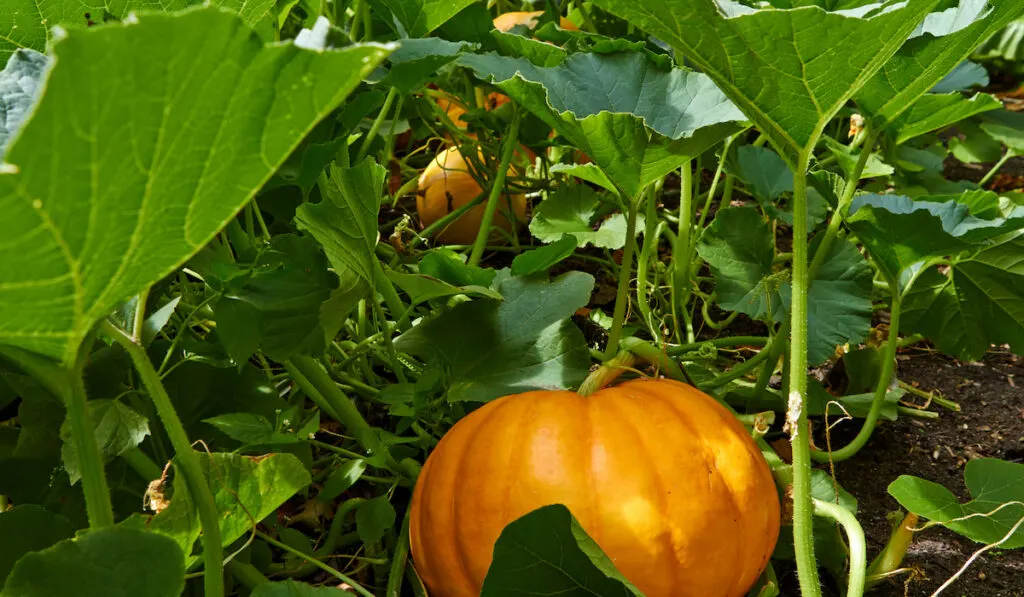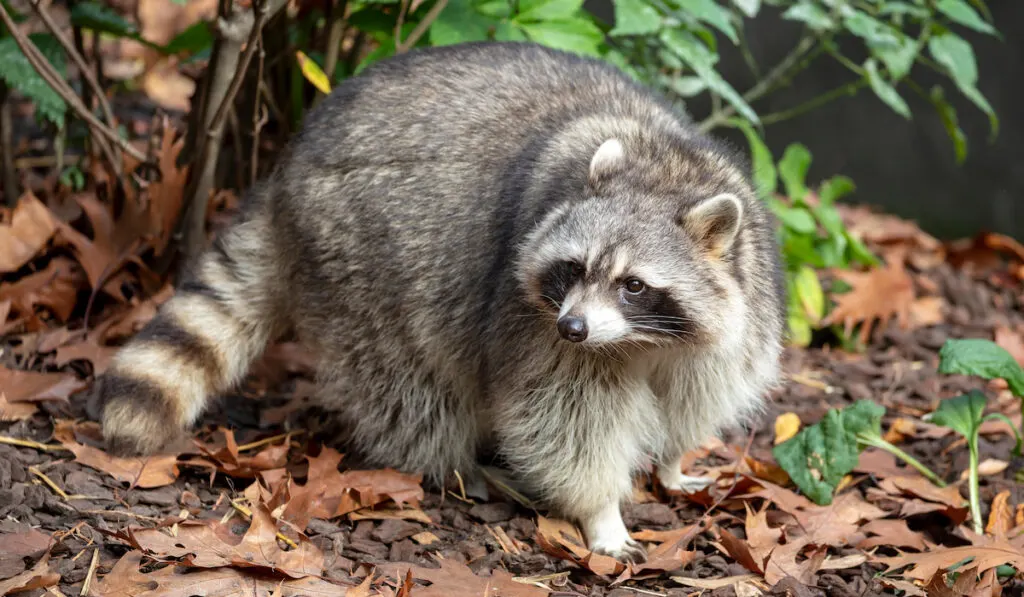With raccoons in your environment, your pumpkin plantation is everything but safe. Being omnivores, raccoons have a taste for meat and for plants, and pumpkins may just be on their radar.
Can raccoons eat pumpkins?
Raccoons can eat pumpkins. It does not matter whether they are offered pumpkins or not. Once raccoons gain access to pumpkins, they will eat them until they’re gone.

If your pumpkins have been ruined by unknown animals in recent times, chances are, raccoons are responsible. This is especially true if they live in your environment.
But not to worry, in this article, we talk about raccoons eating pumpkins, how to stop them from eating your pumpkins, and much more.
Table of Contents
Raccoons and Pumpkins
Raccoons eat pumpkins, and of course, since they are omnivores, eating pumpkins is not out of place for them.
Unlike many other animals, raccoons attack pumpkin plants from below. They do not go after the fruit directly. Instead, they burrow into the ground and decimate the whole plant upward. The downside to this is that they kill the roots, so the pumpkin plant dies almost immediately.
So, even before your pumpkins are ready for harvest, raccoons may destroy the plants.
Of course, in the absence of pumpkin plants, raccoons will go after just the fruits if they are available. If you intend to offer your leftover pumpkins to raccoons, you can place them outdoors. You could even spice the treat up by putting some other fruits or vegetables inside the squash.
Do Raccoons Eat Rotten Pumpkins?
For any animal, including raccoons, eating rotten pumpkins is potentially harmful. Like humans, raccoons are omnivores. So, if our bodies cannot resist rotten pumpkins, raccoons will be unable to handle them too. In other words, do not give raccoons pumpkins that can harm you.
Rotten pumpkins may contain various microorganisms, including yeasts, bacteria, molds, and parasites. Besides making pumpkins unsightly, these organisms could harm the health of raccoons.
While rotten pumpkins are not okay for raccoons, pumpkins that are just getting soft should be fine for them. So, if you see no signs of spoilage, you can leave it outside for the raccoons.
Do Raccoons Eat Carved Pumpkins?
Raccoons do eat carved pumpkins. So, even if you have cut up a jack-o-lantern out of your pumpkins or chopped them up, raccoons won’t mind having a bite.
Do Raccoons Eat Whole Pumpkins?
As seen in this video, raccoons may initially have a hard time getting into a whole pumpkin. But if they dig their sharp claws and teeth into it, they will ultimately crack the squash open.
Obviously, once they have split the whole pumpkin open, they can eat it.

What Part of Pumpkins Do Raccoons Eat?
As we have hinted before, raccoons eat all parts of a pumpkin. They drill into the soil and start eating from the roots upward. They eat the roots, stem, leaves, fruits, seeds, and every other edible part of a pumpkin.
Are Pumpkins Safe for Raccoons to Eat?
Every part of a pumpkin is safe for raccoons to eat in moderate amounts. However, if a raccoon eats excessive amounts of any pumpkin part, it may suffer cucurbit poisoning.
Pumpkins (and other cucurbits) contain Cucurbitacin E, a substance that protects them from insects. In the usual amounts, Cucurbitacin E is harmless. But in elevated concentrations, it may harm raccoons.
Consuming excessive amounts of pumpkins may cause cucurbit poisoning in raccoons. But sometimes, pumpkins come with elevated concentrations of Cucurbitacin E due to various factors. In such conditions, even a small amount of pumpkins may cause cucurbit poisoning.
Signs Raccoons Are Eating Your Pumpkins
If you are losing pumpkins, and you suspect that raccoons may be behind the loss, look out for the following signs:
- Scratch marks on the leftover pumpkins.
- Raccoon droppings around the pumpkins.
- Raccoon footprints; you can find pictures of what they look like online.
- If you have a pumpkin plantation and your plants are dying rapidly, raccoons may be around. This is especially true if the other signs are present. Raccoons usually attack pumpkins from the roots, so the plants die off quickly.
- If you hear shuffling noises and hushed growls around your house, you just may have raccoons on your property.
- Also, raccoons may be around if your garbage cans are getting flipped over and your trash scattered all around.

How to Stop Raccoons From Eating Your Pumpkins
- One way to stop raccoons from eating your pumpkins is to keep your yard clean. An untidy compound can attract raccoons and other animals that eat pumpkins.
- You may also get a repellent to deter raccoons from coming towards your pumpkins. Spray the repellent around the pumpkins, and the raccoons will stay away.
You may opt for a commercial repellent, or you may prepare one yourself. When buying a commercial repellent, look out for sprays with rotting solid eggs. The smell from the eggs should discourage the raccoons from coming close.
If you intend to prepare the repellent yourself, work with ingredients like hot sauce, cayenne pepper, eucalyptus oil, and vinegar. The odors from these substances are unpleasant to raccoons.
Final Thoughts
Raccoons can eat pumpkins, and in general, every part of a pumpkin is safe for them to eat.
However, if they consume too much Cucurbitacin E, they may suffer cucurbit poisoning.
If you intend to offer pumpkins to raccoons, do not give them rotten ones. Raccoons can eat squash, whether carved or whole, but giving them a carved one is better.
Resources
- https://homyden.com/animals-eat-pumpkin-protect/
- https://georgiawildlife.com/out-my-backdoor-turning-jack-lantern-wildlife-treats
- https://www.vetpoultry.com/blogs/barn-talk-livestock-health-and-nutrition/can-pets-and-livestock-eat-leftover-halloween-pumpkins
- https://www.abc10.com/article/news/verify/environment-verify/safe-for-wildlife-eat-discarded-pumpkins-as-long-as-not-rotting-bleached-wax-composting-recommended
- https://library.cedarmill.org/kids/school-age/rotten-pumpkin/
- https://www.arrowexterminators.com/learning-center/pest-library/rodents/raccoons
- https://www.falling4fall.com/2019/12/are-any-pumpkins-poisonous-which.html
